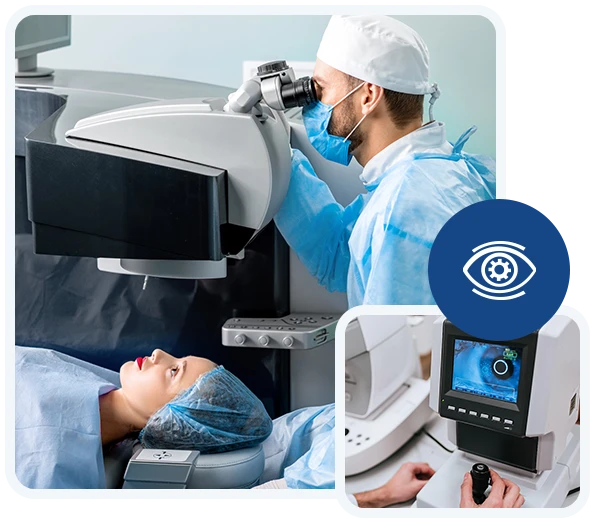Laser Vision Correction Specialist
Eye Associates of Monmouth
John Ghobrial, MD
See Clearly Without Glasses
If you’ve been wearing glasses or contacts most of your life, you probably can’t remember what it’s like to wake up and see clearly without first reaching for your specs. John Ghobrial, MD, ophthalmologist and founder of Eye Associates of Monmouth, in Colts Neck, New Jersey, specializes in laser vision correction for the most common eye problems, including astigmatism. Find out if you’re a candidate for LASIK or PRK laser vision correction by calling the office or scheduling a consultation using the online system.

Laser Vision Correction Q & A
LASIK (laser-assisted in situ keratomileusis) is the most popular refractive surgery in the United States. It combines laser treatment and surgical procedures to create a corneal flap of tissue that is less than a third of the thickness of a human hair. Dr. Ghobrial has extensive specialized training in LASIK vision correction, and he has even undergone the procedure himself to better understand it.
Once he creates a corneal flap, he uses the precisely programmed laser to reshape your cornea’s curvature to improve your vision. He then repositions the flap, and your eye heals rather quickly. Many people are able to see clearly without depending on glasses or contacts after LASIK surgery. Sometimes it takes a couple of days for your eyes to adjust, and other times you notice an immediate improvement following your LASIK procedure.
PRK stands for photorefractive keratectomy. In this procedure, Dr. Ghobrial treats your cornea directly with the laser instead of first creating a flap, as he does in LASIK. PRK was the first type of laser vision surgery. PRK uses an excimer laser to reshape the corneal tissue after a thin top layer is removed completely.
This thin outer layer (the epithelium) repairs itself by growing back over the corrected corneal surface of your eye within a few days after surgery. Although recovery from PRK is a bit longer than it is from LASIK, if you have a thin cornea, PRK may be ideal as there’s no risk of corneal flap complications.
Both LASIK and PRK can correct a variety of vision problems, including:
- Myopia
- Hyperopia
- Astigmatism
- Presbyopia
If you’d like to depend less, or not at all, on your glasses and contacts to see clearly as soon as you open your eyes each morning, LASIK or PRK laser vision correction surgeries might be right for you. Call to schedule a consultation to learn more, or request an appointment online.

